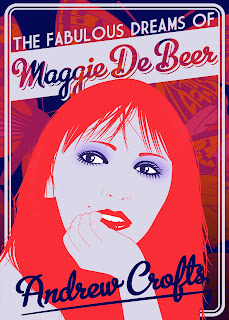Possible New Business Model for Publishing - Andrew Crofts
It’s boom time in the world of self-publishing but in the vast majority of cases the creation of any book is a team effort, not a solitary one, however much some of us might wish to the contrary.
Traditionally writers have recruited valuable team members by persuading an established publishing house to join in the creative endeavour, providing financial backing, editorial, design and marketing assistance all in one package.
If self publishing writers want to gain the support of a similarly experienced team they either have to call in a lot of favours, or they have to hire the necessary editors, designers and publicists themselves. The flaw in the argument there, of course, is that without the “financial” contribution of a publisher, not many writers can afford to do that. The result can then be the badly edited texts and badly designed covers which the enemies of self-publishing continually draw attention to, and the low levels of “discoverability” that beset us all.
Everyone is searching for alternative ways forward such as “crowd- sourcing” or “co-operatives”. So, here’s another imaginative business model that has been thrown into the mix of possible ways forward: What if everyone on the team was taking the same speculative risk – like asking actors to work for nothing on the promise that they will own a slice of the box office if the play/film they are being recruited for turns out to be a hit?
The website, http://netminds.com/, is the brainchild of Tim Sanders, a charismatic and persuasive business guru and former Chief Solutions Officer at Yahoo. The site is a network of authors, editors, designers and publicists. When an author has an e-book they would like to publish they circulate details around the network, announcing what sort of help they are looking for. If you need a cover designed, for instance, you ask any designers who might be interested to pitch for a place on the team. If you find someone you would like to work with, you then agree a percentage with them. Once the manuscript is ready to publish Netminds takes the project forward, (for their own pre-agreed percentage), and if the book starts to earn money the financial splits are worked out and distributed amongst the various parties by an independent contractor.
It seems to me that once Netminds has a decent sized pool of talent to choose from, the chances of these self-selecting teams scoring a success with a book are much the same as with a book produced through a traditional publishing deal. It is, after all, the same mix of people who will be working on the project, just freelancers rather than salaried employees. The disadvantage is that no one gets paid up-front. The advantage, however, is that the writer remains the prime mover in the game, retains the copyright and should earn more from a hit than would be the case with the traditional publishing model.
It seems like a model well worth thinking about.

Comments
At the moment a traditional publisher takes most of the financial risk and so keeps most of the profits, whereas the main risk an author takes in that model is with their time (e.g. a year to write a book... and how do you put a price on a year of someone's life?)
For those of us who have been fulminating for years about not being in control of our own business decisions – and not being treated in a professional and businesslike manner by the industry which surrounds us and is essentially built on the fruits of our considerable labours – it sounds as though we are once again being asked to hand over a chunk of equity in our product – and worse, the actual distribution of our income - to others. I think this kind of co-operative model (and I’m not against co-operatives per se) only works where the input is roughly equal – for instance in the video games industry where the coder, the digital artist, the designer and producer (or some variation of these key roles), have equal shares and demonstrably equal input. But even there, they would remain in control of their own finances. One wonders who the ‘independent contractor’ would be and just how much equity they would be taking for the distribution. And beyond that, the implications for things like tax become problematic – Amazon supplies the self publishing writer with useful downloads. Would the independent distributor give the author access to these?
In any industry where one individual contributes the lion’s share of the product development – essentially owns the product - giving away equity in that product should not be undertaken lightly. It seems to me rather like an artist giving an equity share of his major artwork to the picture framer. Or a boat builder giving an equity share to the sail maker. These people would work from the premise that they would have to buy in the services they need to make a viable product. Occasionally some form of bartering might take place to the advantage of all concerned, but nobody would relinquish control over their own business unless the rewards were pretty much guaranteed – i.e. the way trad publishing used to be! It’s my firm belief that as writers we should become much more businesslike and professional all round. A website which allowed me to view, contact and buy in such help as I needed on a totally freelance basis would be very useful. But that’s a bird of a different feather!